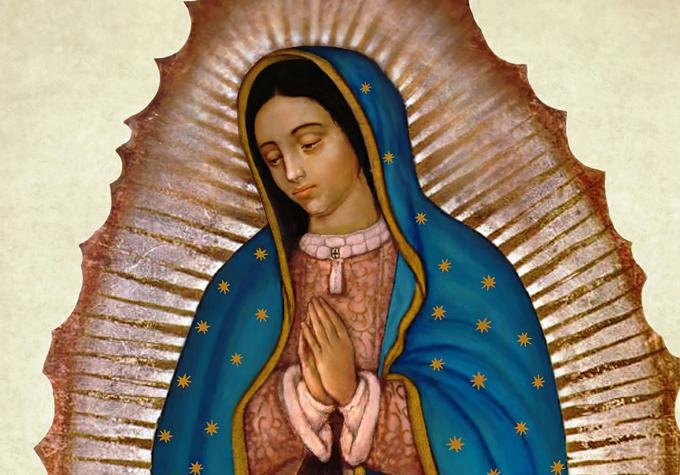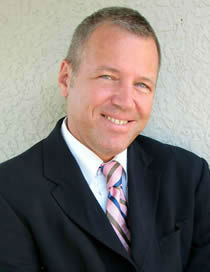
Spirituality
... Mary's role is akin to the Incarnation, in that she images the image who images the Father. She does so by God's choice, not her own.

Pakaluk
In honor of the Immaculate Conception and Our Lady of Guadalupe, I invite you to ponder with me the two opening lines of Mary's song, the "Magnificat" (Luke 1:46-7).
We are confronted first with the fact that Mary even composed a song. She must indeed have composed it in advance, and memorized it, repeating it to Luke later. Did she do so out of obedience to what is found in the prophet Isaiah? Consider some verses in Isaiah 12:
1 You will say in that day:
"I will give thanks to thee, O Lord
2 the Lord God is my strength and my song."
3 With joy you will draw water from the wells of salvation.
4 And you will say in that day:
"Give thanks to the Lord,
call upon his name;
make known his deeds among the nations,
proclaim that his name is exalted."
6 ''Shout, and sing for joy ... for great in your midst is the Holy One of Israel."
It would take someone who loved Scripture very much, to read such words and then to aim to fulfill them, by literally composing a song on the stated theme -- and then by memorizing the song, and taking care to pass it on, so as to "make known his deeds among the nations," as has surely happened.
We can presume that Elizabeth was of the same mind, and so we see Mary forming with her a little "Benedict community," so to speak, of women who foster and share among themselves, and are aware that they are doing so, a deep love for their inheritance in Israel.
Mary's song has been set to music by Taverner, Tallis, Palestrina, Guerrero, Lassus, Byrd, Victoria, Monteverdi, Gibbons, Schutz, Charpentier, Pachelbel, Purcell, Vivaldi, Telemann, J.S. Bach (and two of his sons besides), Mozart, Schubert, Mendelssohn, Liszt, Bruckner, Tchaikovsky, Vaughn Williams, Rachmaninoff, and Rutter -- among others.
If imitation is the sincerest form of flattery, then the entire civilization of music praises Mary. Catholic attempts to honor her through what is called "hyperdulia" almost fall short in comparison with the adornments brought to her by music. The Muses have ceded their place to the Virgin.
"In the early 12th century, the Virgin had been the supreme protectress of civilisation. She had taught a race of tough and ruthless barbarians the virtues of tenderness and compassion. The great cathedrals of the Middle Ages were her dwelling places upon earth" is the testimony of Kenneth Clark in his series, "Civilization."
So, we are confronted at the start by someone who loves Scripture, ponders it, assesses her life in relation to it, and then makes sacrifices to be obedient to it. Her great love for Scripture resulted in her very words becoming enshrined in Scripture. The Holy Spirit took her words for his own. Thus, God honors her before we honor her.
Of this line, "My soul doth magnify the Lord" -- observe that it takes for granted that already in her body she is "magnifying the Lord," in the sense that he is growing within her, taking his flesh from her flesh. If we had a silhouette of expecting Mary, we could point to it and say: Her magnified body doth magnify the Lord.
But as regards her soul, I find that nothing surpasses what Origen wrote:
"Now if the Lord could neither receive increase or decrease, what is this that Mary speaks of, My soul doth magnify the Lord? But if I consider that the Lord our Savior is the image of the invisible God, and that the soul is created according to His image, so as to be an image of an image, then I shall see plainly, that as after the manner of those who are accustomed to paint images, each one of us forming his soul after the image of Christ, makes it great or little, base or noble, after the likeness of the original so when I have made my soul great in thought, word, and deed, the image of God is made great, and the Lord Himself whose image it is, is magnified in my soul."
Here we find two profound thoughts. The first is that Mary's role is akin to the Incarnation, in that she images the image who images the Father. She does so by God's choice, not her own.
The second is that she could not have said these words truly, and they are true ("Your word is true," Jn 17:17, "Scripture cannot be negated," Jn. 10:35), unless she was "great" already in "thought, word, and deed." Let us admit that it is startling for someone to say that in his soul he has made the Lord appear even greater than he is. Such a statement must be either an expression of the greatest humility, or utter madness. But, again, Scripture is true.
Mary goes on to say "My spirit rejoices in God my Savior." St. Basil rightly sees that the Greek word for "rejoices" points back to the Baptist leaping for joy in Elizabeth's womb. He comments, "Because then the holy Virgin had drunk in all the graces of the Spirit, she rightly adds, And my spirit has leaped for joy."
But note that she refers to God immediately as "my" Savior, not "the" Savior. She was free from sin from the moment of her conception, we confess, but because God was her Savior
- Michael Pakaluk, an Aristotle scholar and Ordinarius of the Pontifical Academy of St. Thomas Aquinas, is a professor in the Busch School of Business at the Catholic University of America. He lives in Hyattsville, MD, with his wife Catherine, also a professor at the Busch School, and their eight children. His latest book is "Mary's Voice in the Gospel of John" available from Amazon.
Recent articles in the Spirituality section
-
Pushed off the platformMichael Pakaluk
-
Advice to fathersMichael Pakaluk
-
The higher you go liturgically, the lower you should go in service of the poorBishop Robert Barron
-
The Easter Season is the fleshly seasonMichael Pakaluk
-
Ripley and RupnikEffie Caldarola


















